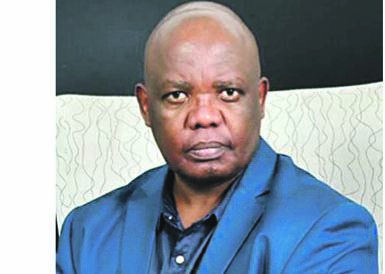
What can be done to help heal the open, bleeding wounds of black South Africans?
How can these wounds, both literal and figurative, be remedied to birth self-aware social groups and people who are collectively confident to positively engage with forces of globalisation and the fourth industrial revolution; forces defined and determined from elsewhere?
Why is such a project urgent when African identities have become homogeneous because of the hegemony and normalisation of Western standards, values, technologies and aspirations?
The ritual incidents of Afrophobia, amounting to self-hate, underscore a country laid siege with bleeding wounds.
The annual scapegoating of citizens from other African countries is reflective of a people still in mourning.
Quite clearly, urgent action is necessary to bring back the comprehensive practice of ubuntu to assist in bringing back social solidarity in black communities and making whole those individuals lost in the maze of Western-designed consumer products, values and dreams.
Twenty-five years after the delivery of political democracy, the Edenic projects of nonracialism and a rainbow nation have arguably failed because there was no fuller appreciation of what is meant by ubuntu.
To be clear, ubuntu consists of two integral parts: first, isintu, or value systems or sets of traditions, habits and rituals; and second, umuntu or performer of the norms and practices that constitute ubuntu as a state of being.
The ubuntu that was used and applied immediately after 1994 for engendering nation building should have initially been focused on rebuilding the black social groups before there were attempts at rebuilding all races through the defunct Truth and Reconciliation Commission (TRC) and forging social cohesion through short-term sporting codes such as the 1995 Rugby World Cup, the 1996 Africa Cup of Nations and the 2010 Fifa World Cup.
Such an understanding of ubuntu, exemplified above, came across as sanitised and a quick fix that could not undo centuries of dehumanisation, as characterised by apartheid.
By definition and practice, this is anathema to ubuntu since it devalued the value systems (isintu) of the majority population and defiled the humanity of both the black people and their white counterparts.
Hence the African idiom that “isintu senza umuntu abe nobuntu” (cultural performances and practices help with the internalisation and embodiment of ubuntu).
Ubuntu, then, should have focused on the formerly defined and dehumanised black social groups precisely because these communities continue to carry their wounds openly, as highlighted by South Africa’s record-high incidents of femicide, homicide, conspicuous consumption, lack of empathy for African political migrants, economic refugees and asylum seekers denigrated as amakwerekwere.
By being internally focused, after 1994, the ubuntu rebuilding project would have underscored the sets of values and habits that shaped precolonial societies whereby community welfare, family upliftment and societal well-being are prioritised above individual proclivities.
In taking this path, black South Africans would be like the Scandinavians, who are socialised from an early age to be modest and not to indulge in public displays of riches.
The sense of equality and equanimity is internalised among Scandinavians using a variety of secular adages, but the Law of Jante has proven to be the most salient in setting boundaries and behavioural decorum among Scandinavians.
Similarly, the Chinese (Zhongyong) and Japanese (Shinto) have a set of adaptable rules and rituals in their upbringing that set them apart from other nations.
The most salient of these is Confucianism, which is based on being aware of one’s station in life (hierarchy) and the pursuit of filial piety (harmony).
The neglect and abandonment of isintu has since resulted in schizophrenic black individuals who assume different roles and responsibilities at home, at work, in recreational and in technological spaces.
Unlike their white counterparts, who are equally at home in all of the abovementioned private and public spaces – since they use their own languages (English and Afrikaans), ethics (Judeo-Christianity or Protestantism) and technology (discovered largely by fellow Anglo-Saxons) – the black races come across as interlopers, trespassers, unwanted and uninvited guests to a party whose rules and customs they are unfamiliar with.
Such circumstances have led the majority of black South Africans to live in a perpetual state of half-citizenry.
It is a state experienced when one must unlearn most of what was learnt in a family home in order to function fully in fields whose language and codes are written primarily for non-black subjects.
It is not by incident that black- and brown-coloured emojis came later, after huge uproar from consumers of technologies that were conceived, designed and manufactured in foreign environments.
Had we inculcated ubuntu values of self-love and appreciation, by emphasising the performances of isintu as a tool for nation-building, we would not have been befuddled and bamboozled by Western or Eastern modernities and industrialisations.
We would have been productive members of the collected world’s civilisations in our normalised contributions to the world’s store of genius works.
This is one reason that this African axiom is pertinent: “Isintu sakha umuntu aze abe nobuntu” (traditional and cultural practices construct a personhood that is imbued with ubuntu).
A tool for nation-building
Placing isintu at the centre of reading and understanding ubuntu will enable South Africans to rediscover the ordinary citizen who has, since 1994, given space to political figures and their parties.
Isintu may help reach citizens across race, gender and social classes to achieve a sense of commonness; a bond that would identify them as South Africans.
Enabling processes of isintu in all spaces of learning and production may allow all members of South African society to deliberately partake in practices that will help with the internalisation and embodiment of ubuntu.
Tembe is a senior researcher at Tmali and associate professor of Zhejiang Normal University




 Publications
Publications
 Partners
Partners








